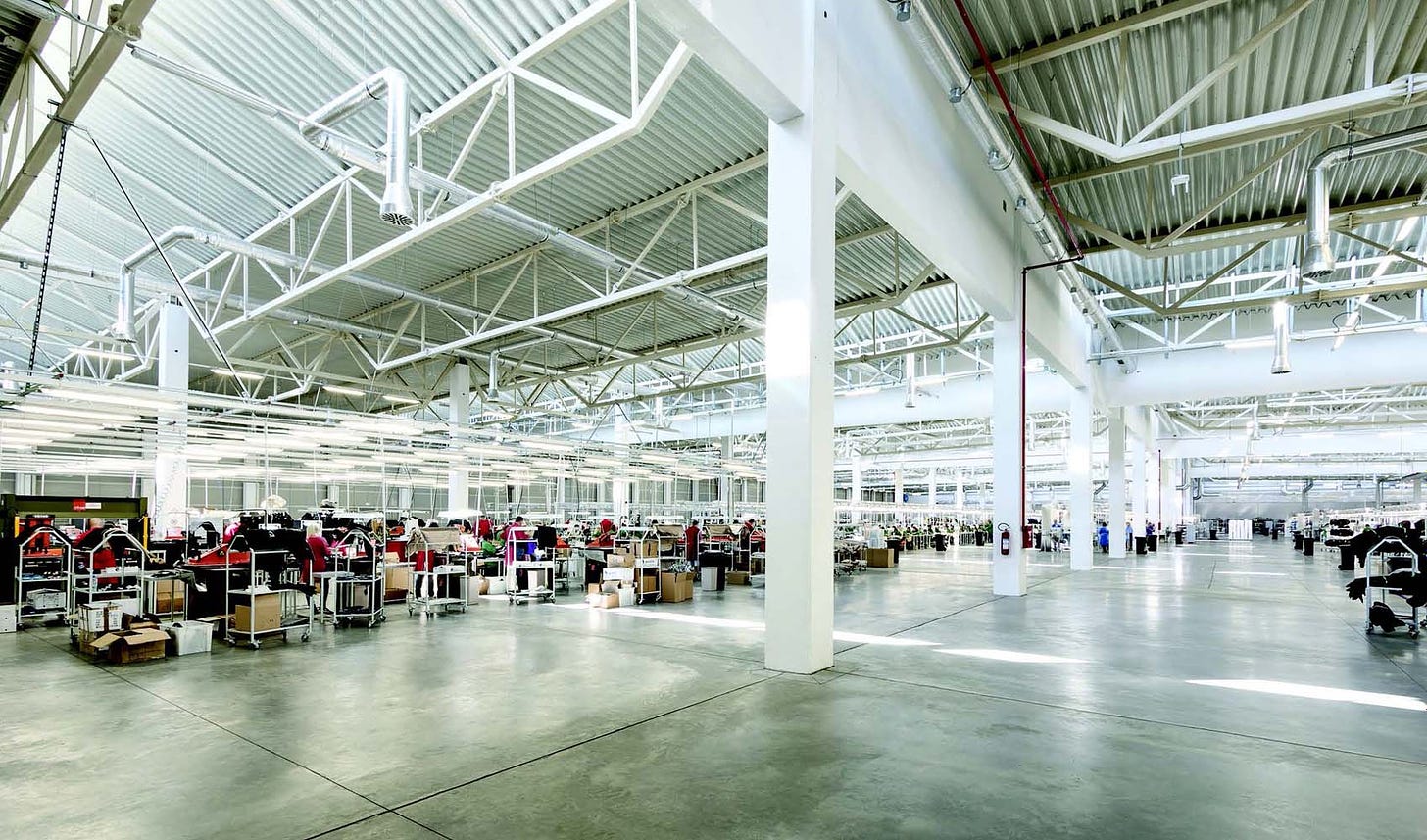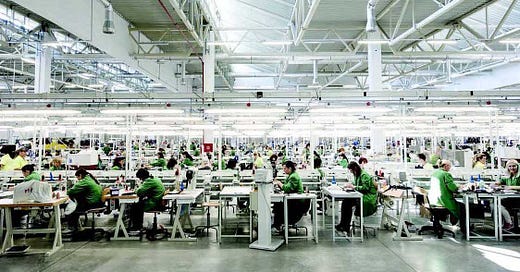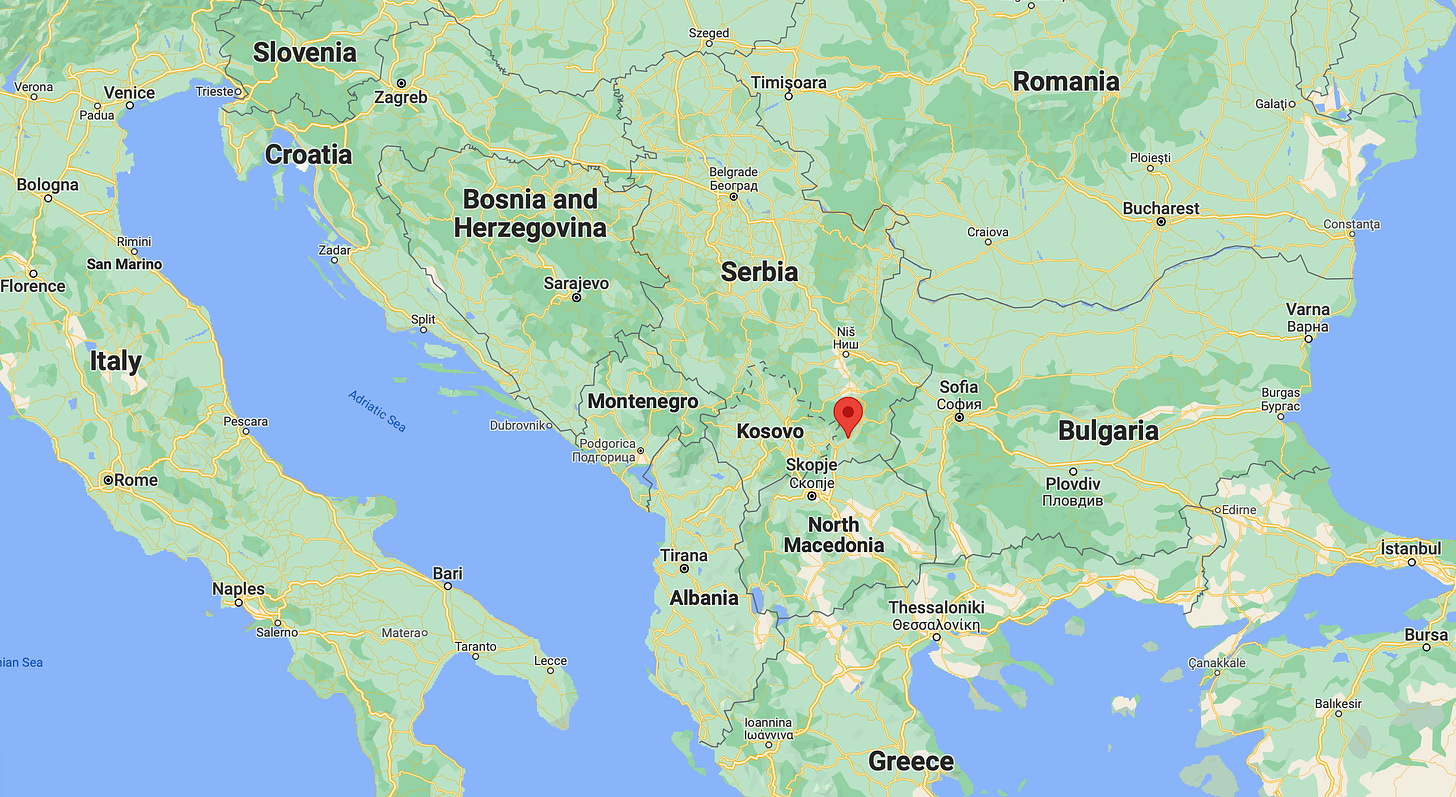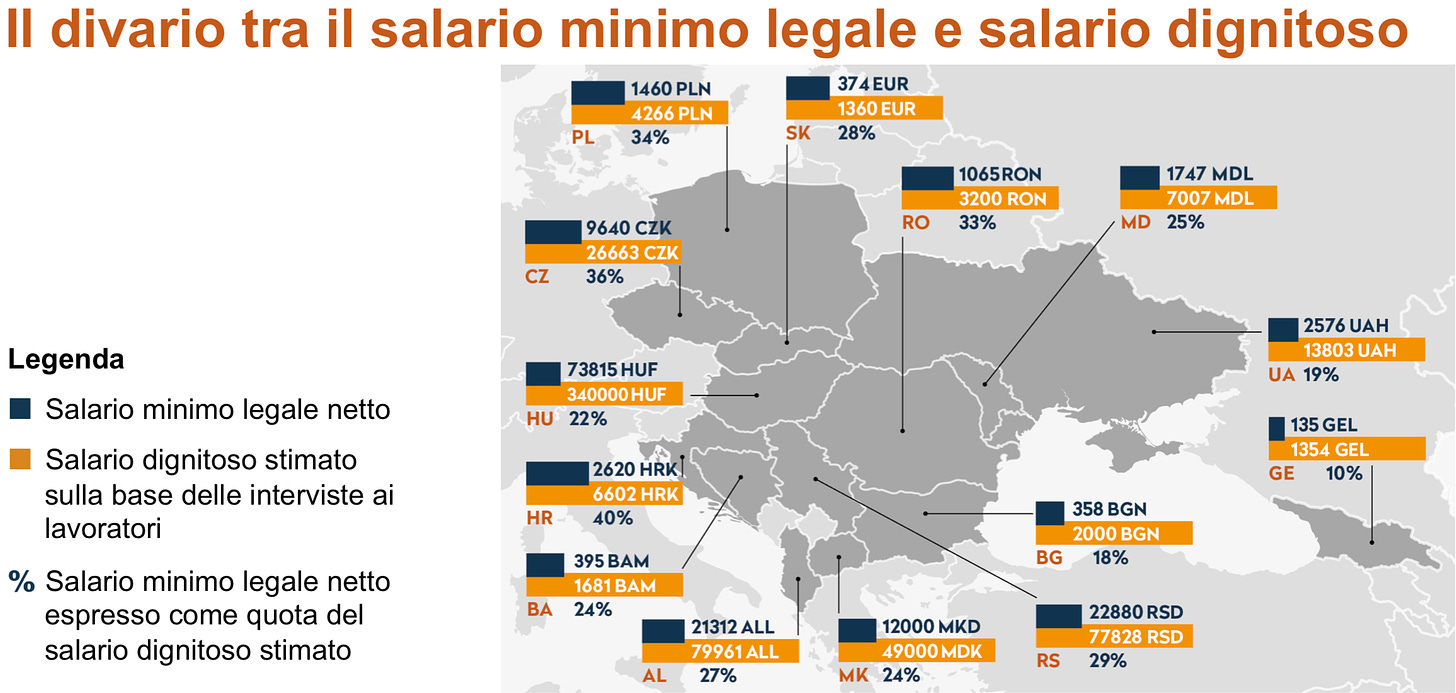S2E21. In their shoes
The decision of the Italian footwear company Geox to close its factory in Vranje (Serbia) revealed the widespread policy of labour exploitation and tax advantages in non-EU countries
Hi,
welcome back to BarBalkans, the newsletter with blurred boundaries.
After last week’s stop with BarBalkans - Podcast on the first year of the Yugoslav Wars, it is time to get back on the road.
Our first topical issue in 2022 is workers’ rights, in particular those violated by an Italian company in Serbia.
The opening of a factory in Vranje by the footwear company Geox was supposed to be the symbol of Serbian economic rebirth.
It proved to be the opposite, in the most humiliating way.
Silence on Geox scandal
At the beginning of August, the Italian footwear company informed its employees that the factory in Vranje, in southern Serbia, would close soon.
Despite a first-half 2021 revenue of 264 million of euros, Geox explained in a statement that «it is unsustainable to maintain productive activities in Serbia».
Allegedly, the two triggers have been: the impact of COVID-19 pandemic and the «decisive shift in consumption towards casual and lower-priced shoes». In other words, the structural change in demand.
As a result of the factory’s lack of profitability, 1250 workers found themselves without a job.
On September 1st, the firm was liquidated. But all the company’s obligations had already expired, including the severance payment.
The only hope for these 1250 people is a minimal compensation from the National Employment Service of Serbia.
It must be said that the atmosphere was quite the opposite five years ago.
The factory was inaugurated in 2016 with great fanfare, in the presence of Geox chairman, Mario Moreti Polegato, and then-Prime Minister of Serbia (now President), Aleksandar Vučić.
They talked about the economic recovery in the poor South of Serbia, investment in emerging technologies to increase production and a new beginning for workers and their families.
We have to go beyond all these high-sounding announcements and back another four years to find out the Geox rotten foundations in Serbia.
According to an agreement signed in 2012 with the government in Belgrade, the company based in Montebelluna (Treviso) committed to hire 1250 employees, in exchange for 9 thousand euros per year for each job created.
What does this mean?
That’s 11.25 million euros a year, 56 million 250 thousand euros in total.
The grants covered almost half of the labour costs and were the equivalent of about twice the amount of taxes owed. These were the conditions imposed by Geox to open a factory in Serbia.
Despite these fiscal advantages, labour exploitation in the factory was shocking.
After five years of violation of labour laws - always denied by the Italian company - Geox left Serbia because of the lack of profit in the medium term.
What it is left behind is a story that is anything but exemplary.
Delocalization and over-exploitation
Just a few months after the opening of the factory in 2016, a worker was fired after she complained about psychological abuse and mobbing.
One of the most worrying allegations made by the shift supervisor Gordana Krstic was the fact that workers were allowed to go to the bathroom only twice a day.
Even if Geox attributed the case to «the discontent of a single worker» and stated that «there have never been trade union conflicts in the factory», labour exploitation was a reality for the majority of employees.
In addition to the severe restrictions on breaks during working hours (allegedly, the managers even advised employees to wear adult diapers), another imposition was the ban on opening windows despite the high temperatures.
Between 2016 and 2017, local newspapers reported on several anonymous appeals to the Ministry of Labour and mobilizations of workers in Vranje with the support of international trade unions.
Until the closure of the factory (but also afterwards), Geox became an example of labour exploitation by foreign companies in Serbia.

Geox was founded in 1992. To date, footwear production has been almost entirely outsourced.
Before the opening of the factory in Serbia, the entire production was carried out by subcontractors: 85% in Asia (Cambodia, China, Indonesia, Myanmar, Thailand and Vietnam) and 15% in Eastern Europe.
The Vranje factory was meant to be a turning point: a directly owned production unit.
But there was nothing altruistic about that decision. On the contrary, it was determined only by cheap labour and public grants offered by the Serbian government.
Geox needed favorable conditions in order to counterbalance production risks, which are almost exclusively borne by subcontractors in “common” delocalization practices. This is why grants became a decisive factor.
However, all this does not justify the subsequent violations of labour rights.
But it explains them.
Several studies have shown that workers’ rights violations are more frequent within an economic model based on the growth of profit through delocalization and exploitation of cheap labour.
We should not only consider criminal cases of Chinese companies (such as Linglong Tire), but also widespread policies of Western companies in Serbia and in the Balkans.
Back in 2016, a report by Clean Clothes Campaign denounced that minimum wages are lower in Eastern Europe than in China, considering also piecework, disregard for safety standards and the dignity of employees.
A year later, another report reiterated that «European origin is considered a synonymous with fairness and social responsibility. Unfortunately, this is a myth».
There is a huge problem with the difference between real wages and the cost of living. This is «dramatic», according to what it is stated. And then, we have to remind the negative impact of the «failed» implementation of labour legislation on workers’ lives.
It is no coincidence that a third Clean Clothes Campaign report concluded that «the footwear industry is still far from respecting the human and trade union rights of workers who produce their shoes».
Among the companies considered by the reports, there is also Geox. With specific references to the situation inside and outside the Serbian factory:
«In general, workers reported an atmosphere of terror inside the factory: no one dares to react for fear of losing their jobs. The threat of leaving is a powerful weapon for Geox, and fear hovers not only inside the factory, but also in the whole town of Vranje, considered the high percentage of unemployment».
As we know, in the end Geox did not remain in Serbia.
The future of Serbian workers
But what happened to the redundant workers at the former Geox factory in Vranje?
One hundred employees have been hired by the Turkish company Teklas Automotiv, while the others received a one-off sum of less than 500 euros by the government.
The promise in Belgrade is to find a new investor as soon as possible. Even if it should be clear in Serbia (and in the Western Balkans in general) that cheap labour is not enough.
It is no coincidence that government agencies offer foreign companies an 80% saving on labour costs (compared to the EU average), but above all free infrastructure and several years of exemption from profit and income taxes.
The subservience of less developed countries to foreign capital is a reflection of power relations. The structure of global production is determined by multinationals: national governments can only try to integrate through huge grants.
The words of Prime Minister Ana Brnabić - who attributed Geox departure to the fact that «Serbia is no longer a country with cheap labour» - seem almost paradoxical.
The way to attract foreign investments has not changed. While multinationals’ profits increase thanks to national grants and the overexploitation of labour and natural resources, inequality is bound to grow.
Read also: S2E19. In the heart of the hemicycle
One hope lies in the EU institutions and their will to oblige companies selling goods in the Single Market to provide detailed analyses on the level of environmental and human rights protection in their supply chains.
In this way, they will not only impose accountability on multinational companies for labour and human rights abuses, but new possibilities for transnational trade unions within the companies will also be created.
If these safeguards were already in place, the story of the workers at the former Geox factory in Vranje would probably have a different ending.
Pit stop. Sittin’ at the BarBalkans
We have reached the end of this piece of road.
In sympathy with the workers in Vranje, today we find bottles of wine from that city at our bar, the BarBalkans.
Vranje wine region stretches across the valley that bears the same name, along the southern course of the Morava river.
The land extends for almost 500 hectares of vineyards on the slopes of the valley. The highest quality varieties produced in Vranje are Cabernet Sauvignon, Vranac, Sauvignon Blanc and Pinot Noir.
Among the wineries in the region, the most important and oldest is Vinarija Aleksic.
After 30 years in this business, the winery made its debut on international markets in 2012. Since then, 14 labels have been sold, thanks to the work of 20 employees: they produce 350 thousand of liters of wine every year.
The winery is run by three sisters, Dragana, Maja and Marija. They are carrying on the decades-old family tradition with the aim to conquer the global scene, starting from the land of abused rights.
Let’s continue the BarBalkans journey. We will meet again in a week, for the 22nd stop.
A big hug and have a good journey!
Did you like this newsletter? Forward it to someone you think might be interested in!
BarBalkans is a free weekly newsletter. Behind these contents there is a lot of work undertaken.
If you want to help this project to improve, I kindly ask you to consider the possibility of donating. As a gift, every second Wednesday of the month you will receive a podcast with an article about the dissolution of Yugoslavia.
Every month you can listen to the preview of BarBalkans - Podcast on Spreaker and Spotify.
Pay attention! The first time you will receive the newsletter, it may go to spam, or to “Promotions Tab”, if you use Gmail. Just move it to “Inbox” and, on the top of the e-mail, flag the specific option to receive the next ones there.
As always, I thank you for getting this far with me. Here you can find all the previous newsletters.
BarBalkans is on Facebook, Twitter and Instagram. The updated archive is on Linktree.










